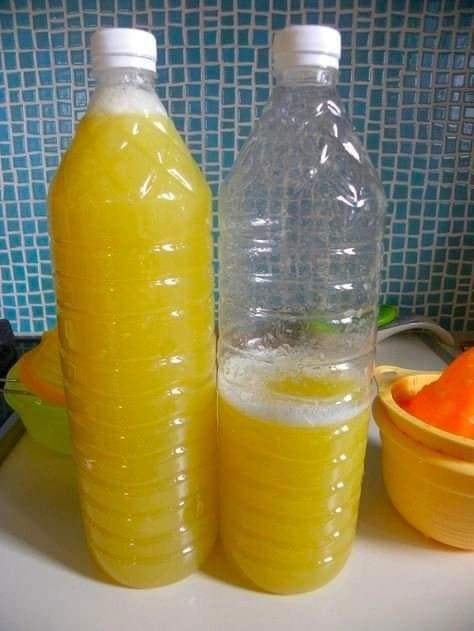ADVERTISEMENT
Ingredients
- 6 cups water (1.5 liters)
- 5 tablespoons grated ginger (50 g)
- The juice of 2 lemons
Preparation
- Heat the water and when it comes to a boil, add the ginger.
- Let the decoction do for one or two minutes and remove from the heat.
- Let it sit for 10 minutes.
- Then, strain the contents, add the lemon juice, and consume.
- It is best consumed on an empty stomach.
For this recipe to have the desired effect, the best thing to do is to drink it daily. It is a treatment whose consequences begin to be felt after a certain time.
It is necessary for you to know this so as not to despair, if you ever want immediate result
Although it is advisable to drink this water first thing in the morning, if you prefer to drink it at another time, put it in a thermos and ingest it throughout the day.
There is no limit, you can consume as much as you want.
Ginger and lemon, an exceptional combination
In cooking or medicine, ginger and lemon are two foods that have, independently of each other, a number of benefits and properties for our health. Ginger is most often believed to have significant aphrodisiac and anti-vomiting properties. It would also be a great help to lose weight. As for lemon, it is generally attributed with exceptional slimming and antioxidant properties. Each of these two elements offers a substantial list of benefits and properties. But what about the combination of ginger and lemon?
Ginger: Ginger is a root native to Asia, which is also called a white spice. Known for more than 5,000 years, it is used in cooking and medicine in the countries where it originates. But in recent decades, ginger has been very popular in Western countries because of its many benefits.
Lemon: Lemon is a citrus fruit that we are used to eating in the West. It is the citrus fruit of the Sun, and is grown in the warm regions of India, the Middle East, and the Iberian Peninsula. Lemons are mainly made up of water, but they also contain some nutrients. For example, there are a large number of vitamins, including vitamin C and vitamin B9 (folic acid). Several trace elements and vitamins enrich this composition. These include phosphorus, calcium, magnesium, and potassium. Finally, lemons also contain natural antioxidants, known as polyphenols.
ADVERTISEMENT
